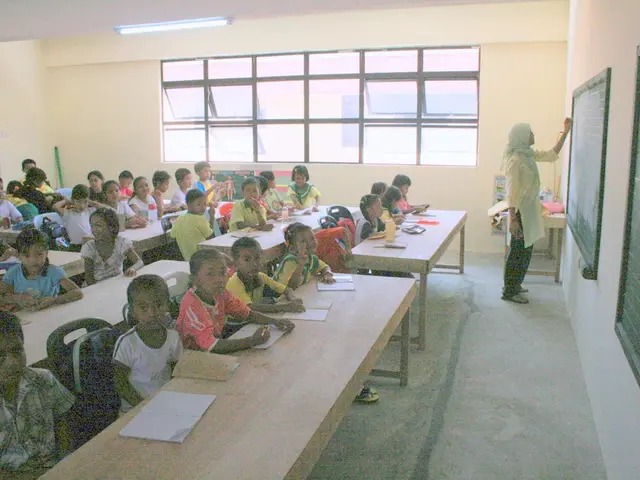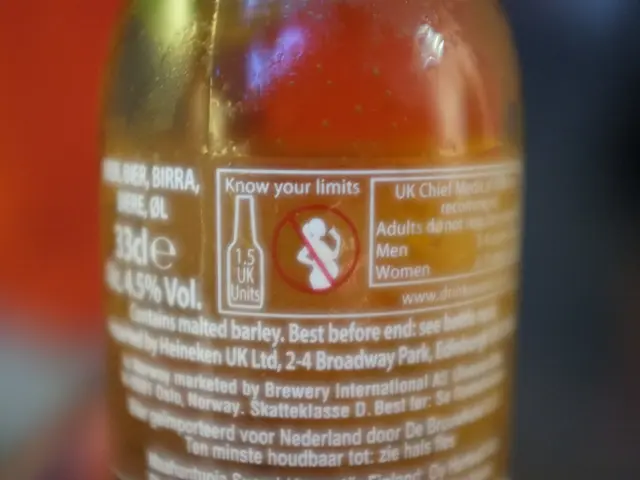Amendments to Immunization Schedules: Health Authorities Announce Significant Revision in Vaccination Sequence Due to Rising Concerns Over Pediatric Mortality from a Deadly Infection
Revamped Vaccination Protocol for Kids: Bringing Earlier Protection Against Measles, Mumps, and Rubella
In a bid to boost vaccination rates amidst a spike in measles cases, health officials have decided to revamp the vaccination schedule for children. Starting in 2026, kids will receive earlier protection against measles, mumps, and rubella (MMR).
Earlier this year, officials raised the alarm about a rise in measles cases in the UK and encouraged parents to get their children vaccinated. European health leaders, too, shared concerns as cases have doubled in the last year alone on the continent.
To address this issue, the UK Health Security Agency (UKHSA) has brought forward the age at which children receive their second dose of the MMR vaccine — from three years old to just 18 months. This move is intended to "improve uptake and provide earlier protection."
With two doses, children can achieve up to 99% protection against measles, mumps, and rubella, grim illnesses that can lead to severe complications like hearing loss, problems during pregnancy, meningitis, and even death.
The changes to the jab program also encompass several other tweaks designed to improve overall child protection. Among them is the introduction of a fourth dose of the 6-in-1 vaccine that includes Hib bacteria, a microbe known to trigger life-threatening infections like meningitis and sepsis.
In line with these updates, the first dose of the MMR vaccine will be given at 12 months, and the second one at 18 months, starting from January 2026. This switch stems from the discontinuation of the Mentorix Hib/Men C vaccine due to supply issues, UKHSA officials have stated. The Mentorix Hib/Men C vaccine has been the primary vaccine for children turning one year old, but this will now be replaced with a new one from the mentioned date.
The 12-month appointment will still provide vaccination for the first MMR dose, as well as meningitis B and pneumococcal booster jabs. To balance the changes, the first dose of pneumococcal vaccine will be moved from 12 weeks to 16 weeks. Similarly, the second meningitis B vaccine dose will be administered at 12 weeks instead of 16 weeks to ensure early protection against the infection.
Contagious through airborne droplets that spread when a person breathes, coughs, or sneezes, measles can impact up to 90 percent of the unimmunized people close to an infected individual. The virus can cause flu-like symptoms and a rash; however, it can lead to severe, life-threatening complications like meningitis or sepsis. To avoid outbreaks, at least 95% of the population needs to be vaccinated against measles, as per public health guidelines. The UK currently stands at around just under 90% vaccination rates among children.
[1] NHS Digital. (2023). Immunisation coverage rates for children in parts of England underperforming. [online] Available at: https://www.ngs.uk/immunisations/immunisation-statistics/[2] UKHSA. (2025). UK Health Security Agency unveils major changes to childhood vaccinations. [online] Available at: https://www.gov.uk/government/news/uk-health-security-agency-unveils-major-changes-to-childhood-vaccinations[3] JCVI. (2022). Recommendations on immunisations: MMR and 6-in-1 vaccines. [online] Available at: https://www.gov.uk/government/publications/jcvi-the-mmr-6-in-1-vaccine-recommendations/jcvi-the-mmr-6-in-1-vaccine-recommendations---3-may-2022[4] PHE. (2025). Changes to the childhood immunisation schedule. [online] Available at: https://www.gov.uk/government/publications/changes-to-the-childhood-immunisation-schedule/changes-to-the-childhood-immunisation-schedule--3-may-2022
- The revamped vaccination schedule for children aims to boost health-and-wellness by providing earlier protection against measles, mumps, and rubella (MMR) starting in 2026, as per the UK Health Security Agency (UKHSA).
- In response to a rise in measles cases, government leaders are encouraging parents to consider medical-conditions like hearing loss, complications during pregnancy, meningitis, and death that can result from the disease.
- In an effort to enhance protection, the UKHSA has made tweaks to the childhood vaccination program, including bringing forward the age for the second MMR dose and introducing a fourth dose of the 6-in-1 vaccine.
- To achieve up to 99% protection against measles, mumps, and rubella, European health authorities stress the importance of practicing science-based medicine by ensuring children receive two doses of the MMR vaccine and staying vigilant about immunization coverage rates.
- The discussions on mental-health reveal concerns about the impact that outbreaks of infectious diseases like measles can have on both individuals and society, emphasizing the need for continuous scientific advancements and effective vaccination programs.










